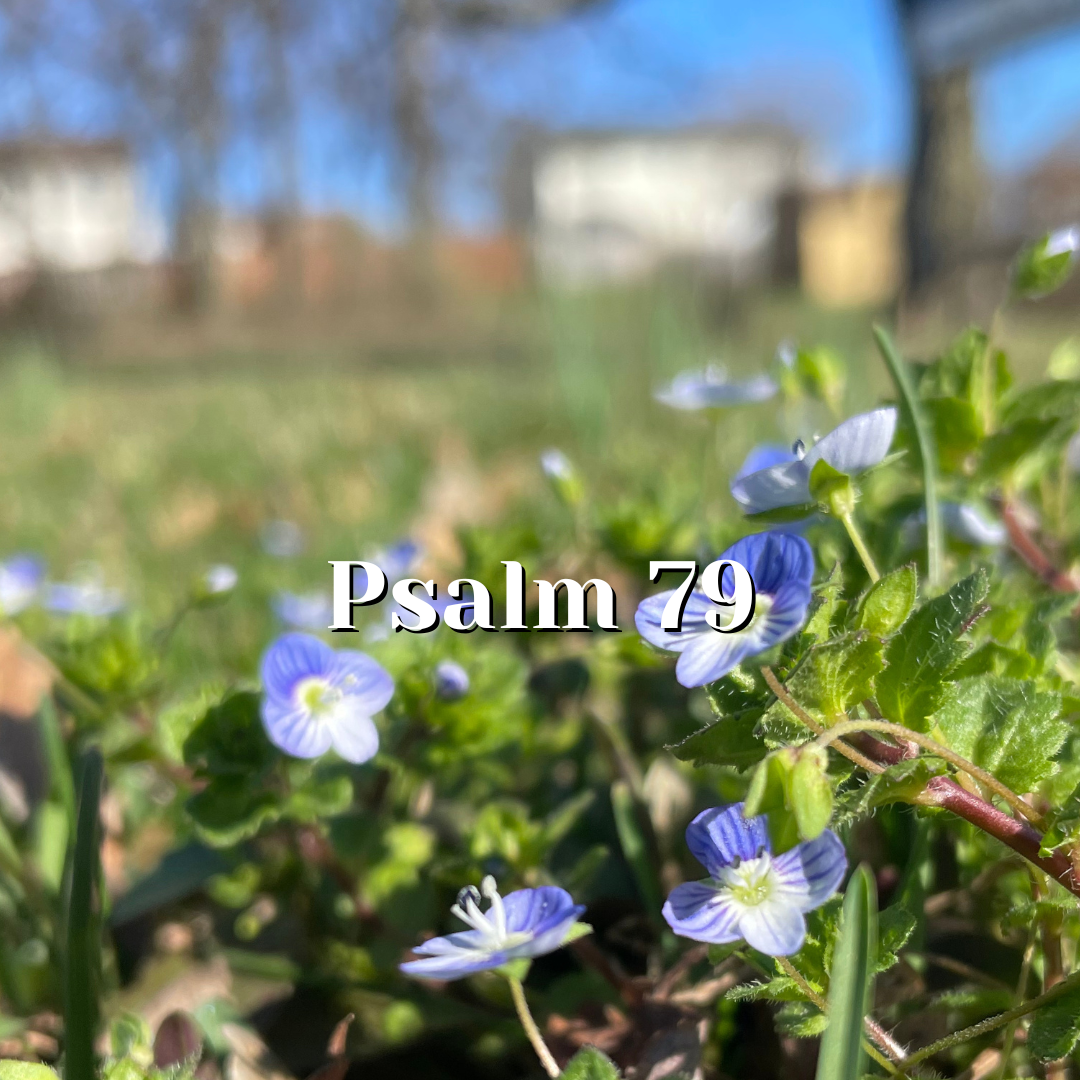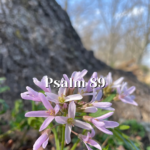[ad_1]

A Psalm of Asaph.
1 O God, the heathen are come into thine inheritance;
Thy holy temple have they defiled;
They have laid Jerusalem on heaps.
2 The dead bodies of thy servants have they given to be meat unto the fowls of the heaven,
The flesh of thy saints unto the beasts of the earth.
3 Their blood have they shed like water round about Jerusalem;
And there was none to bury them.
4 We are become a reproach to our neighbours,
A scorn and derision to them that are round about us.
5 How long, O LORD, wilt thou be angry for ever?
Shall thy jealousy burn like fire?
6 Pour out thy wrath upon the heathen that know thee not,
And upon the kingdoms that call not upon thy name.
7 For they have devoured Jacob,
And laid waste his habitation.
8 Remember not against us the iniquities of our forefathers:
Let thy tender mercies speedily prevent us:
For we are brought very low.
9 Help us, O God of our salvation, for the glory of thy name:
And deliver us, and purge away our sins, for thy name’s sake.
10 Wherefore should the heathen say, Where is their God?
Let the revenging of the blood of thy servants which is shed
Be known among the heathen in our sight.
11 Let the sighing of the prisoner come before thee;
According to the greatness of thy power preserve thou those that are appointed to death;
12 And render unto our neighbours sevenfold into their bosom
Their reproach, wherewith they have reproached thee, O Lord.
13 So we thy people and sheep of thy pasture
Will give thee thanks for ever:
We will shew forth thy praise to all generations.
Asaph considered the sins of his fathers, the sins of the past, in psalm 78. The work likely stirred in his heart the thoughts of his own faults.Through this whole great effort, God stood high and above all the trouble Asaw saw. Now, in psalm 79, as he examines the same troubles lamented in psalms 73-77, I find a change in Asaph’s words.
Asaph says “we”, not “I” and “our”, not “mine.” It seems like he recognizes the great troubles all share, not looking only at himself. True, he complains about the heathen and their invasion, but they don’t hurt “me” as much as they hurt “us”. He learned to expand his sight and to see more.
Look at what Asaph sees! The enemy hurts Asaph and the people, indeed, but they hurt also the Lord! It is the heathen that “knows thee not” and “call not upon thy name” with reproach. It seems to Asaph a shameful disgrace for them to question “Where is their God?” Asaph grew; his eyes see more. While his former pain nearly blinded him, his continued cleaving to God for support had its great result: maturation.
And still, Asaph acknowledges one more thing. His own sin. This is the problem that rises above all others in this psalm. Vs. 9 is an important part of Asaph’s heart. No longer rabid with anger and crying for vengeance, Asaph pleads for mercy.
[ad_2]
Source link







You must be logged in to post a comment.